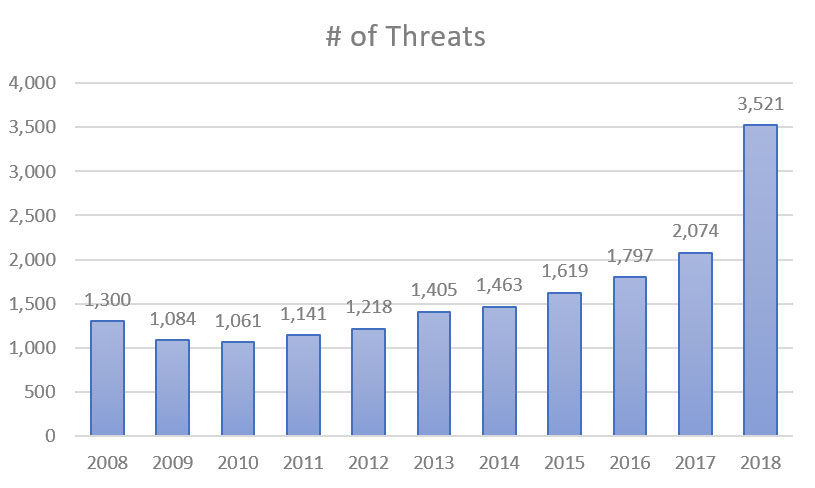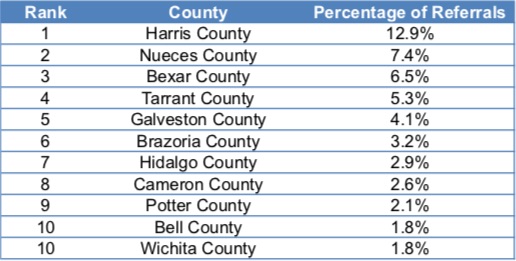In the three months following the Marjory Stoneman Douglas High School shooting, 216 Harris County students were charged with making school threats. Now, a Texas prosecutor says his office is reevaluating its approach to handling these threats.
According to the district attorney’s chief juvenile prosecutor John Jordan, of the 216 students who were charged, nearly 90% of them involved first-time offenders and the majority were between the ages of 12 and 14, reports The Wall Street Journal.
“Obviously, we’re all petrified of the next school shooter,” said Jordan. “But our mission should be to protect kids, not arrest kids.”
Jordan also said some of the charges were reduced or dropped completely after prosecutors examined them more thoroughly.
In one case, a 14-year-old girl was arrested after posting a photo of a fake gun in a classroom with the caption, “BIG MOOD.” Prosecutors dropped charges after discovering the gun was a mock firearm from a gun safety class.
In another instance, charges were dropped against a 12-year-old boy with autism who was arrested for threatening to shoot up a school. Jordan said the boy was terrified in court and was “not a threat to anybody.”
Since the reevaluation of many charges, Jordan’s office has advised school administrators and school resource officers on how to better handle and investigate student threats. His office will handle more detailed threats or cases where a student has access to weapons.
“We’re not going to just charge kids for being idiots,” he said.
During the 2018-2019 school year, Harris County charged 112 students for threats against schools. A smaller percentage were felonies than last year as well.

Data from the Texas Education Agency shows a significant increase in the number of threats to commit a violent offense that led to a student being removed from the school.
According to a report by Texas Appleseed, from 2017 to 2018, Texas juvenile probation departments saw a 156% increase in referrals for terroristic threats and a 600% increase in referrals for “exhibition of firearms.”
Assessed by county, Harris County had the highest number of referrals from a school-based location, accounting for 13% of all referrals for a terroristic threat from a school-based location. Below is the study’s breakdown by county.

It also found that black students were twice as likely as all other students to be referred and students with disabilities were also likely overrepresented in arrests. More detailed numbers can be seen in the study’s chart below.

The report’s authors call on schools to not rely on a zero tolerance policy as it “fails to distinguish between students who actually pose a threat and those who have no ability or intention of harming anyone.”
Texas isn’t the only state that saw a jump in felony charges for school threats. In Macomb County, Florida, Eric Smith prosecuted 66 felony school threat cases last school year. That number dropped to 10 this school year, according to Business Insider.
In Pensacola, just one week after Parkland, 17-year-old Malik Kameka was charged with a felony and a misdemeanor after part of a Snapchat video he made warning friends of a rumored threat to their school was interpreted as a threat itself. Kameka was placed in a juvenile detention center for two weeks and was expelled through the following school year.
“It completely changed my life and I’ve been having to work so hard just to catch up and get back on track with school,” Kameka said.
The felony charge was dismissed and Kameka pleaded no contest to a misdemeanor offense of disrupting a school.







